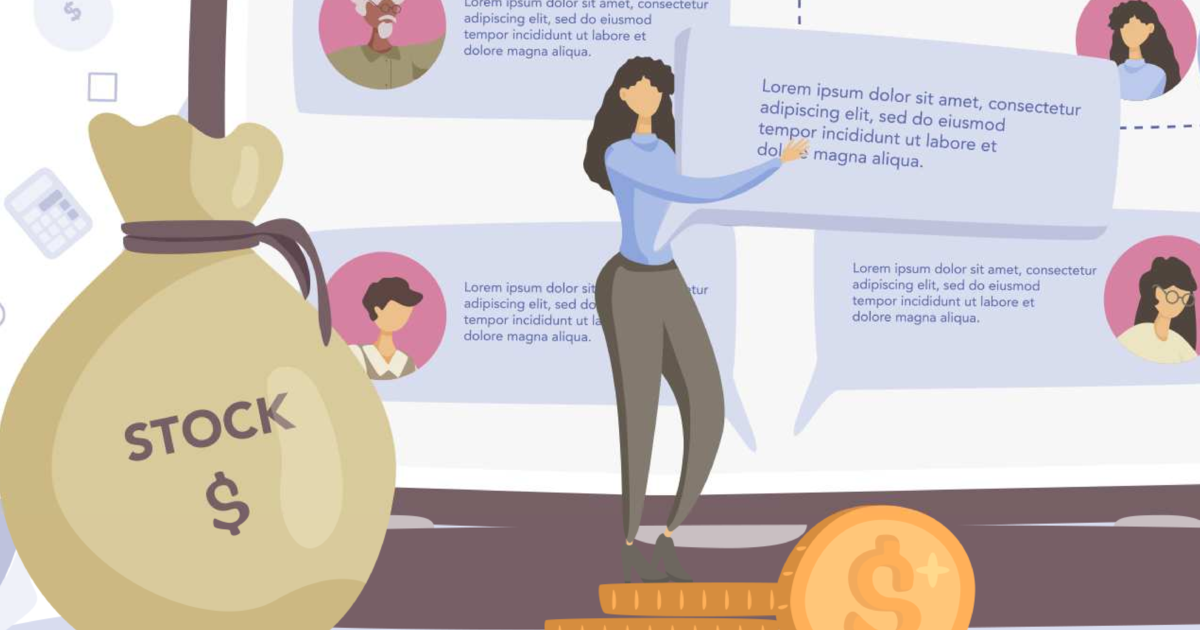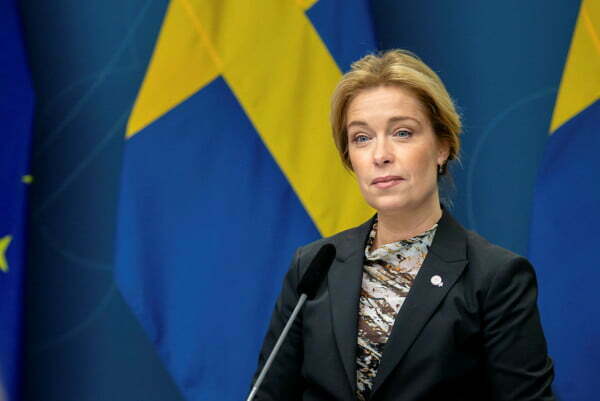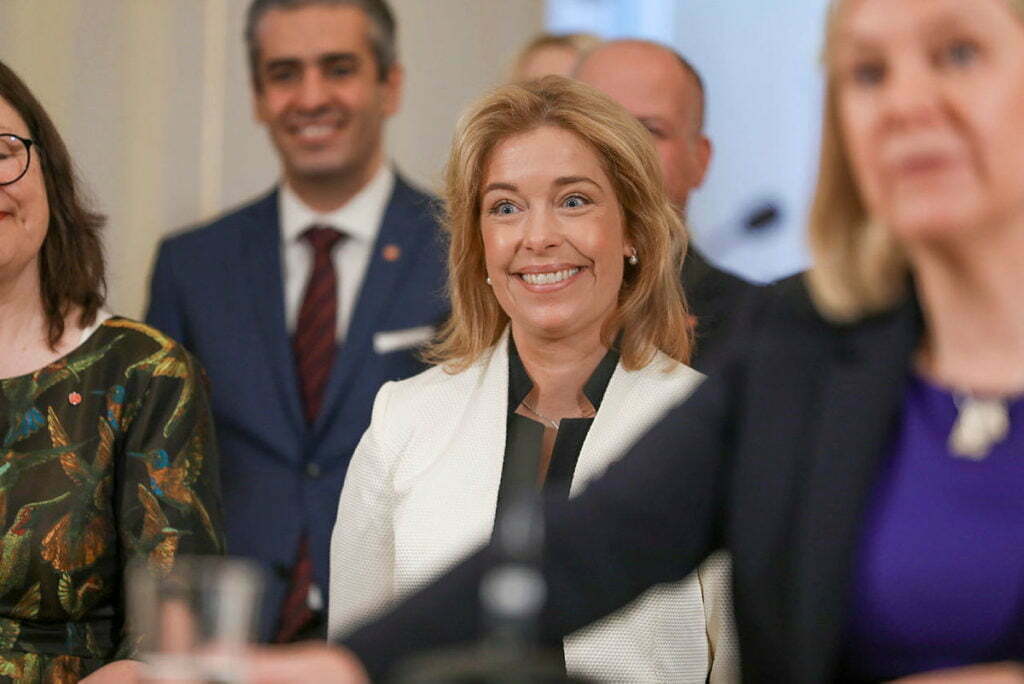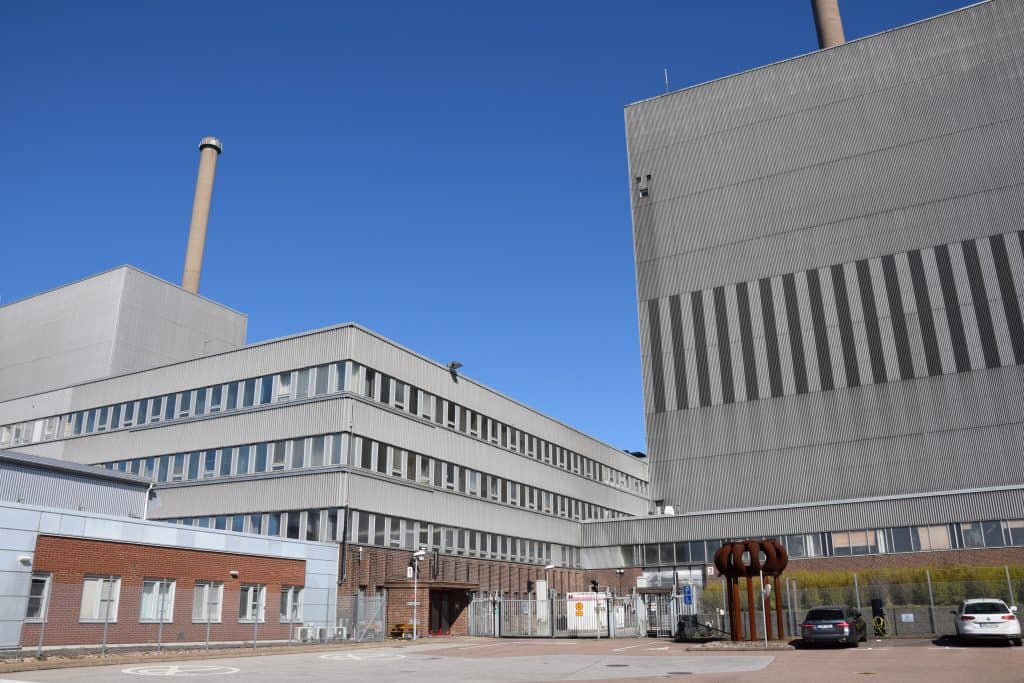@lellep you are right about that: "An example is if I own a house, I only own the land it is on, not the land under it. That belongs to the government. So if someone wants to build a mine and they have the government approval, the mining company can basically compensate me and then proceed to kick me out."
=> "When someone thinks they can find metal or minerals underground, the landowner does not have much to say about.
Opposing exploration is difficult, even if you cause damage and infringement, you have the right to do so, but for compensation. So a landowner can not really oppose if there are no opposing interests that weigh heavier, says L. B., senior lecturer in law at Luleå University of Technology who researches mineral legislation."
But one after the other: This statement comes directly from the research editor forskning.se. Here are a few words about them.
I like that very much:
"About forskning.se
Forskning.se publishes news about research results directly from the country's universities and research institutes. The editorial board also produces its own in-depth articles on current topics where different researchers give their perspectives. Our mission is to ensure that the results from Swedish research reach a wide audience.
As we are a small editorial office, much of our material is written by freelance journalists. What you read with us is knowledge based on research.
Behind forskning.se are a
number of authorities and foundations that fund research, as well as the country's higher education institutions . The editorial office is located at the Swedish Research Council. The news on forskning.se comes from universities, colleges, research funders, research authorities, research institutes and academies.
Images on the site come mainly from the image agency Deposit or Unsplash."
https://www.forskning.se/om-forskning-se/
Here the article, my comments in
green.
Oh, and it's also about us of course. But read for yourself:
"Who loves a mine?
Climate change requires electrification. And electrification amounts of metal - to batteries, solar cells and wind turbines. Many of them can be mined in Swedish bedrock. The question is whether we want to?
When Sweden is to be electrified to meet the climate goals, the eyes are directed downwards - towards the bedrock. There are many of the metals used in electric car batteries and to store surpluses from wind turbines and solar cells.
But the opposition to new mines is great, and the question is whether the electric cars of the future will be powered by batteries with metals from Swedish bedrock.
Metals for mobiles in the rock
1.5 billion years ago, magma rose from the Earth's mantle at what we today call Norra marsh, just east of Lake Vättern. Most of it crystallized at great depths, but a small residue penetrated through the earth's crust and solidified into a rock called grännait.
Half a billion years later, some of the rock melted again and moved slightly.
Since then, it is where it is. Over time, the area has gained a lake and people have settled there, learned to cultivate the land and use mobile phones and electric cars. For a long time unaware that the rock they live on contains high levels of the metals required to manufacture, among other things, batteries.
Canadian Leading Edge Materials has spent the past 13 years setting up a mine in North Marsh. The process has been marred by protests. There are fears that a mine would poison Lake Vättern, which is Sweden's second largest drinking water source. Photo: Niklas Jonasson / unsplash
Today, Norra marsh is classified as one of the world's largest deposits of so-called rare earth metals. It is also about heavy ones, which are more rare than the light ones. Geologist Axel Sjöqvist at the Department of Earth Sciences at the University of Gothenburg has written a dissertation in which he has studied the rocks east of Lake Vättern.
- Norra marsh is a place where the heavy ones occur to a fairly high degree. If you look at deposits in the world that have a high proportion of heavy earth metals, Norra marsh is the fourth largest.
The earth metals are absolutely necessary in smart phones, tablets and computers. Demand is therefore high. No wonder the Canadian company Leading Edge Materials has spent the past 13 years setting up a mine in the Swedish area.
Read also: The mobile contains 68 different metals - and several rare earth metals
It took twelve years to get rejected
Since the first test wells in 2009, the bureaucratic mills have been grinding. The latest announcement is from May 2021, when Bergsstaten, the authority that handles matters concerning exploration and extraction of minerals, rejected an application for a processing concession.
A processing concession gives the applicant the right to extract the material, but not the right to mine the deposit. To do so, the
quarry master is required to issue a permit. In addition, an additional permit is required in accordance with Chapters 9 and 11 of the Environmental Code, which is issued by the Land and Environmental Court.
Understand that who wants. But we know our status.
* Bergmästaren is the head of
Bergsstaten, which since 1998 has had the entire country as its area of activity. The mining state is led by the quarry master, who decides on matters in accordance with the Minerals Act. Source: SGU
Rare earth metals are some of the 30 minerals and metals that are on the
EU's list of so-called critical raw materials, and which are judged to be important for society and for welfare. A large part of the demand comes from companies that manufacture the wind turbines and batteries required to switch to fossil-free energy production.
The problem for the EU, and Sweden, is that almost all minerals and metals are produced outside the Union. Rare earth metals come almost exclusively from China.
Cobalt from the Congo is refined in China
Cobalt, a silver-gray metal used in batteries, is mined in the Congo and refined in China. Reports of child labor, forced relocations of people and difficult working conditions have given rise to concepts such as blood metal and blood batteries.
Since the beginning of the 20th century, no mining of cobalt has taken place in Sweden. However, the metal is found in the Swedish bedrock, including Bergslagen, Kiruna and the so-called Skellefte field. The authority SGU, Sweden's geological survey, has, within the framework of a government assignment to map innovation-critical minerals and metals, investigated the presence of cobalt in Bergslagen. In addition to high levels of cobalt, unusually high levels of other rare earth metals were also found.
Cobalt allows alloys to be very hard and strong, and with a high melting point. Demanded in the manufacture of, among other things, jet engines, spaceships and turbines.
Today, Sweden uses about 500 tonnes of cobalt every year and demand is expected to increase, not least from the battery factories that will be built in several places, including Skellefteå where the company Northvolt in August 2021 made a proposal where they called for mining of cobalt in the Skellefte field.
- It would be ideal for the battery industry to have a cobalt extraction so close. But it still always falls back on the geological conditions; first know where deposits suitable for mining are located, says Nils Jansson, assistant professor of ore geology at Luleå University.
The willingness to invest has decreased
Although cobalt was mined in Sweden during the 18th century, today's knowledge of the metal's presence is low. According to Nils Jansson, this is because the exploration carried out during the 20th century has focused on metals such as copper, zinc, gold and iron. Developing good exploration data for new metals takes time and is expensive.
- There is great interest right now, especially from smaller companies to prospect around the old mines, but the small companies have limited resources and test drilling takes a long time.
At the same time, the willingness to invest in Sweden has decreased.
-
Several of the private sources of venture capital, which have previously been willing to invest, now see it as a risk. There are many projects that have got stuck in Sweden's inefficient and unpredictable permit process for mining and exploration matters, says Nils Jansson.
But we also know that something has already happened and Sweden has risen in the new ranking. See here
That picture is confirmed by Erika Ingvald, unit manager at SGU. She refers to the Fraser Institute in Canada, which ranks countries by how attractive they are to mining companies. From being in the top ten, Sweden has now fallen to 36th place.
- This is because the Swedish permit process is uncertain and not transparent, according to the companies. You can get a decision in one county administrative board, and another in another county. I feel that the companies are careful that there is strict legislation in order to be able to say that their products are developed in the most sustainable way possible, says Erika Ingvald.
The mine affects the reindeer herding industry
One of the mines that has come the furthest is Vittangi in Kiruna, where the company
Talga Group wants to mine graphite to manufacture battery anodes. In September 2021, the company began a test mining where they will extract 25,000 tons of graphite. The goal is to produce 100,000 tonnes a year, which would make Talga Group the largest anode producer in the world outside China. But first, the Land and Environmental Court in Umeå must try the company's application.
The company's plans for graphite mining in Vittangi have also caused protests from the local population and the Swedish Society for Nature Conservation. The mine is feared to have a negative impact on the environment and affect reindeer husbandry. The long process around a possible mine in Norra marsh by Lake Vättern has also been marred by protests. Among other things, a dozen activists chained themselves to a drilling machine. The protests are about the risk that the mine will poison Lake Vättern, which is Sweden's second largest drinking water source.
Now the company has revised its plan and wants, among other things, to move the chemical treatment and extract more metals to reduce waste.
Talga will also shift further processing. It was applied for and granted against the objection by the county Kiruna. See here
The Sami villages are the landowners who are most affected by the mining industry. Image: Emma Waleij / unsplash
The Sami do not own the land, they are users ~in front of the Crown.
Landowners do not have much to say about
When someone thinks they can find metal or minerals underground, the landowner does not have much to say about.
- Opposing exploration is difficult, even if you cause damage and infringement, you have the right to do so, but for compensation. So a landowner can not really oppose if there are no opposing interests that weigh heavier, says L. B., senior lecturer in law at Luleå University of Technology who researches mineral legislation.
You know that it is classified as a resource of national interest and is on the list of critical raw materials in Europe.
Opposing interests he be that the proposed
mine is located near a protected area, as a natura-2000 area. Then a test takes place where the permit can be combined with certain conditions.
Laws that support exploitation
- The Minerals Act is an exploitation legislation that aims for us to find minerals that are to be mined, says L. B.
A landowner can also demand that the company that wants to prospect buy up the land. In order for the landowner to know what is happening, the company must produce a work plan which states what is to be done and when. See here
- The obligation to provide information has over time been strengthened through new regulations and today you are not allowed to start if you do not have a work plan, says L. B.
So far, most mines have been started in northern Sweden and the landowners who have been most affected are Sami villages. In the Kallak area, Gàllok in Sami, the tug-of-war between landowners and mining companies has been going on for more than ten years.
In March 2022, the government decided that the national interest in mineral mining in this case takes precedence over the national interest in reindeer husbandry and granted the British company a processing concession.
Interesting detail
What does the mining industry do with the environment?
Quarry mine for iron ore mining at Kiruna.
According to law, a mine is an environmentally hazardous activity. On the one hand, the mine takes up land and affects the landscape, and on the other hand, the mining and waste management itself risks causing emissions of metals and other substances, especially to watercourses. How large emissions can be accepted depends on the substances in question. Some substances can be dangerous even in very small concentrations.
The mining industry is the industry that produces the most waste in Sweden. The largest amount is considered "Non-hazardous", but since it is a large amount that is deposited, the waste can also affect the landscape. What is considered hazardous waste is also not self-evident. The National Audit Office wrote in a report in 2015 that a significant part of the mining waste has hazardous properties, but that only a small part is classified as hazardous.
You remember Talga AB saying that our material handling is abolutely tiny compared to the neighboring mine. I mean at talga.se it says that they transport as much in one day as we transport in the whole year.
A large part of the waste consists of the so-called enrichment sand which is transported to large ponds. When ore and waste rock that contain sulphide material are blasted and ground, a reaction takes place with oxygen that can create an acidic leachate that can contaminate surface and groundwater.
Recycling
Recycling of critical minerals and metals is still small-scale. Work is underway in various places to increase recycling, for example Northvolt is building a recycling plant adjacent to the battery factory in Skellefteå.
According to SGU, it will take until the year 2100 before recycling can account for half of the amount of rare earth metals that the world will need then.
The question is whether the future fossil-free vehicle fleet will be powered by batteries with metals from Swedish mines. Erika Ingvald believes that it could work, provided that the ongoing investigations come with proposals that can make people safer.
-
I think the understanding of why you need mines, and these metals, has increased in the last five years. The common man has gained better knowledge of the value chains and an increased understanding that the metals are otherwise mined elsewhere. More knowledge of how a modern mine works and whether a specific project that is close would also contribute to the understanding.
The risks of relying on other countries
The risks of relying on minerals and metals from mines in other countries became clear when Russia decided to invade Ukraine. Both countries produce several materials on the EU's list of critical substances. The war has, among other things, caused the price of nickel to skyrocket and the London Metal Exchange has stopped trading on several occasions.
-
Russia's invasion makes it clear that what until 24 February was "only" seen as a risk will also become a reality that affects us all. It becomes clear how complex our value chains are and how many dependencies there are, says Erika Ingvald.
Sweden must be electrified - and what does the metals have to do with it?
Increased electrification is crucial for achieving the climate goals, the Government writes in the recently decided national strategy for electrification . The industry and most of all road transport must be electrified if Sweden is to meet the goals we have committed to in the Paris Agreement.
I still have to read...
Electrification requires, for example, batteries, and batteries metals. Among the so-called conversion metals are cobalt, vanadium, lithium and graphite, which are used in electric car batteries and to store surpluses from wind turbines and solar cells. Demand is increasing globally, which can be seen in the price development.
The EU consumes a quarter of all metals in the world, but accounts for only about three percent of production, and points to Sweden as one of the countries in Europe where the chances of finding metal deposits are high. At present, no conversion metals are mined in Sweden, but we import from countries such as China, Russia and Congo.
Where are the conversion metals?
Lithium: Small deposits have been found in several places in Sweden, including Varuträsk, outside Skellefteå and in Bergby, between Söderhamn and Gävle. But there are probably more places.
Graphite is found mainly in the northernmost part of Sweden. But also in other places in the country. Graphite has been mined previously in Sweden and the reopening of mines in, for example, Vittangi, Kiruna municipality is on the agenda. Graphite is used in the manufacture of steel, batteries and cars.
Vanadium is sought after and prices are rising. The metal has been found, including in Jämtland, Härjedalen and Skåne. Vanadium is also found as a trace metal in Sweden's large iron ores, and may in the future become a valuable by-product.
Cobalt allows the alloys to be very hard and strong, with a high melting point, and is in demand in the construction of, among other things, jet engines, spaceships and turbines. Batteries are another area of use. Cobalt has been found in several places in Sweden, including the Kleva mine, Venafältet (Bergslagen), Kiskamavaara (Kiruna) and around Lainjaur (Skelleftefältet)."
I think this is very interesting to read, insightful interview, well written and a neutral view as I like it. Just scientific. My thanks to the team of
forskning.se and especially to the author Johan Frisk
https://www.forskning.se/2022/05/10/gruvor-klimatet-metaller

 thestockexchange.com.au
thestockexchange.com.au

 thestockexchange.com.au
thestockexchange.com.au





